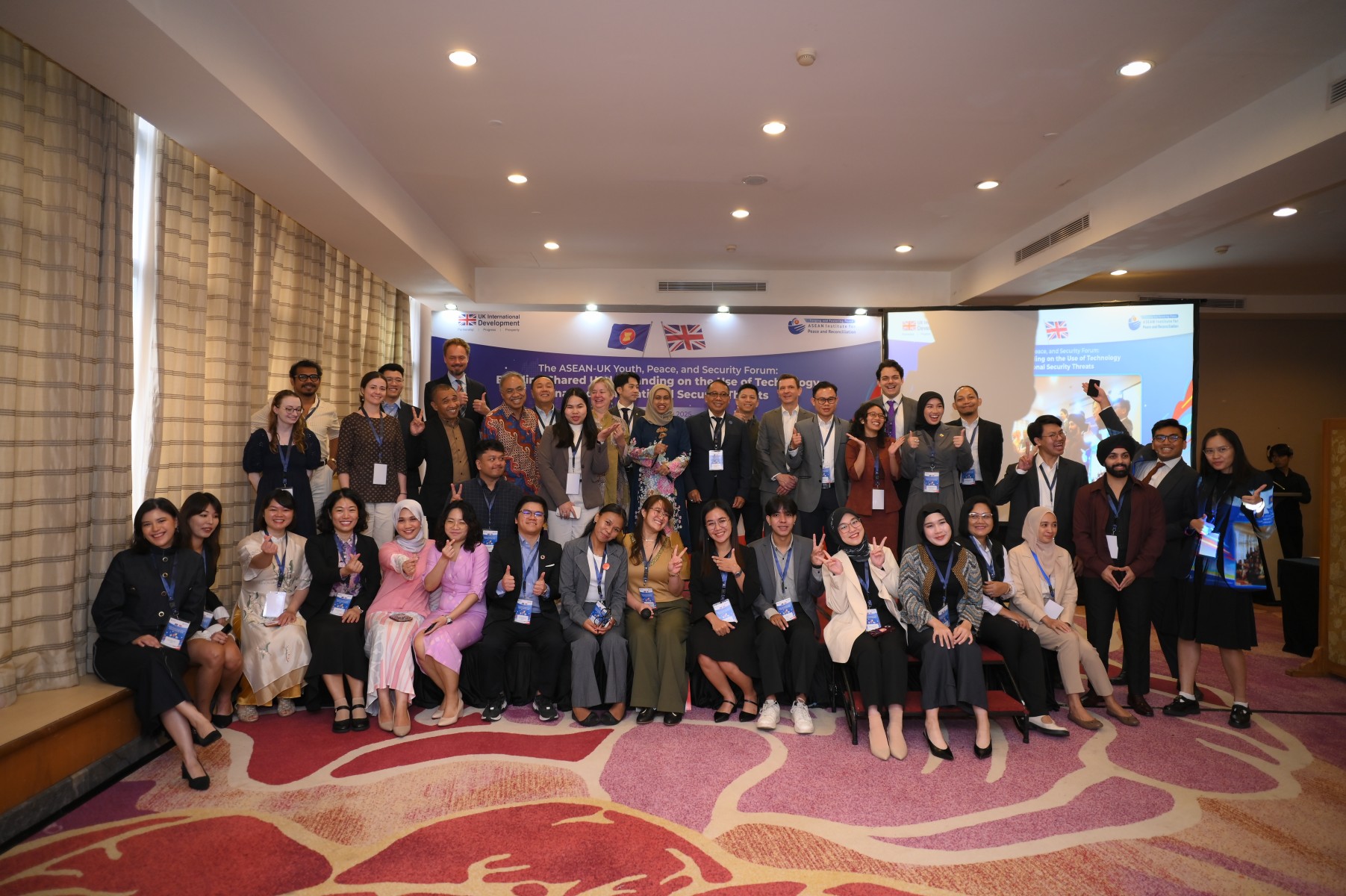ASEAN-UK Youth, Peace and Security (YPS) Forum: Building Understanding on The Use of Technology-Enabled Transnational Security Threats
18-20 February 2025
Jakarta, Indonesia
“The youth, peace and security (YPS) agenda call for the active inclusion of young people, in peace negotiations, conflict resolution and post-conflict rebuilding. In ASEAN, this inclusion can contribute to more equitable solutions, reduce inequalities, and ensure that the voices of future generations are heard.” Such were remarked by H.E. Sarah Al Bakri Devadason, Permanent Representative of Malaysia to ASEAN and Chair of the ASEAN-IPR Governing Council, as she officiated the ASEAN-UK Youth, Peace and Security (YPS) Forum.
Twenty-five youth representatives from ASEAN Member States, Timor-Leste and the United Kingdom (UK) gathered in Jakarta, Indonesia for the Forum, convened between 18-20 February 2025 with the theme building understanding on the use of technology-enabled transnational security threats. It was a collaboration of the ASEAN Institute for Peace and Reconciliation (ASEAN-IPR) with the UK Mission to ASEAN (supported by the Foreign, Development and Commonwealth Office (FDCO)) and The Asia Foundation.
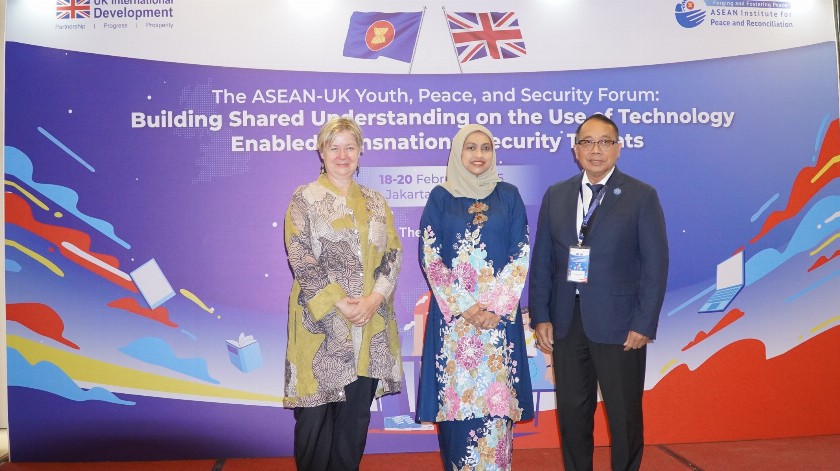
Convened on the 10th anniversary year of the United Nations Security Council (UNSC) Resolution 2250, which laid the groundwork for the role of youth in peacebuilding, the Forum was aimed to build shared understanding amongst the youth participants on the connection between digital technology and the range of technology-enabled transnational threats – including, among others, misinformation, disinformation, radicalism and violent extremism. This was further emphasised in the opening remarks of H.E. Sarah Tiffin, Ambassador of the UK to ASEAN, who stated that by supporting the implementation of the UNSC Resolution 2250, the UK stands with ASEAN to harness the potential of youth in coming up with innovative solutions to transnational security threats.
Mr. I Gusti Agung Wesaka Puja, Executive Director (ED) of ASEAN-IPR, highlighted previous activities of the Institute specifically designed for the youth, which acts as a foundation to the Forum. Among others, he referenced the ASEAN-IPR Youth Conference on Peace and Tolerance (2018); Youth & Technology Workshop & Training (2021); ASEAN & UN Workshop on Youth, Peace and Security (2022); and the ASEAN-IPR Training: Enhancing the Role of Youth in Peacebuilding (2024). The 2018 Youth Conference’s outcome document, namely the “Youth Declaration on Peace and Tolerance” and its Plan of Action, also became reference points for brainstorming and discussions amongst participants and its resource persons at the Forum.
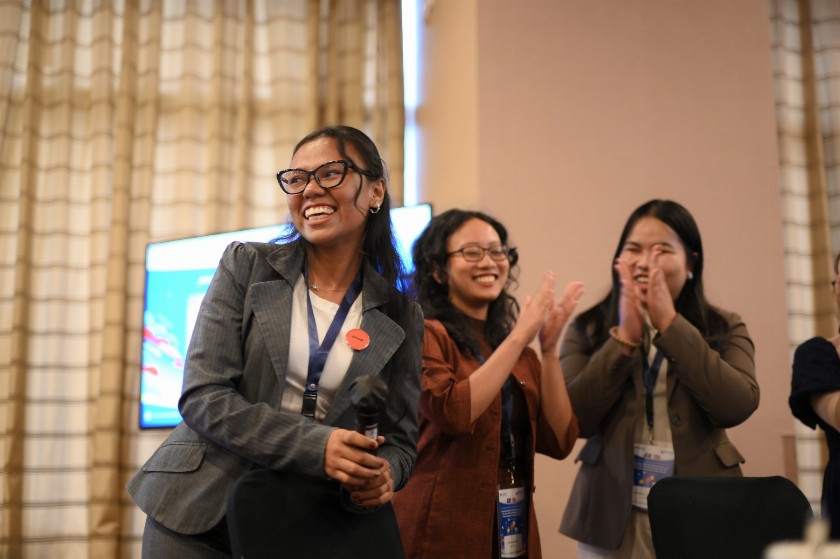
The ED of ASEAN-IPR also underscored how the Institute has always put the youth on the forefront of its activities. Building on its regional convening role, the ED further emphasised how ASEAN has worked to integrate the YPS Agenda to incorporate young generation as one of the key stakeholders in the region’s security architecture.
Throughout the three-day Forum, participants delved into discussions covering youth inclusion; localising the YPS Agenda; intergenerational partnerships; promoting digital literacy; promoting AI and implementing its transparency measures, including digital safety education; explored how to strengthen youth-led fact-checking initiatives; how to strengthen tech-company accountability and implement cyber-resilience programmes; and create safe spaces for whistle-blowers. Sessions were mostly navigated by the Forum Sherpa and youth expert, Ms. Erika Yague, along with officials from ASEAN-IPR, UK Mission to ASEAN and The Asia Foundation.
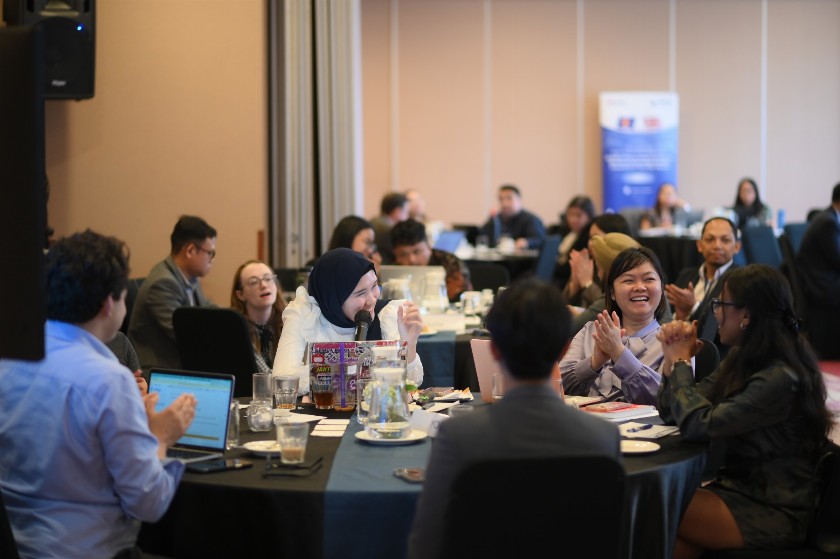
Across the different sessions, youth participants voiced their recommendations to strengthen the role of youth in preventing and/or countering technology-enabled transnational security threats. Such include, among others, contextualising the YPS Agenda to the region; strengthen regional mechanisms for youth engagement, including possible virtual community of practice on YPS; and advance digital and media literacy. At the end of the Forum, a list of recommendations was drawn together by youth participants, which shall be submitted by the ASEAN-IPR to its Governing Council.
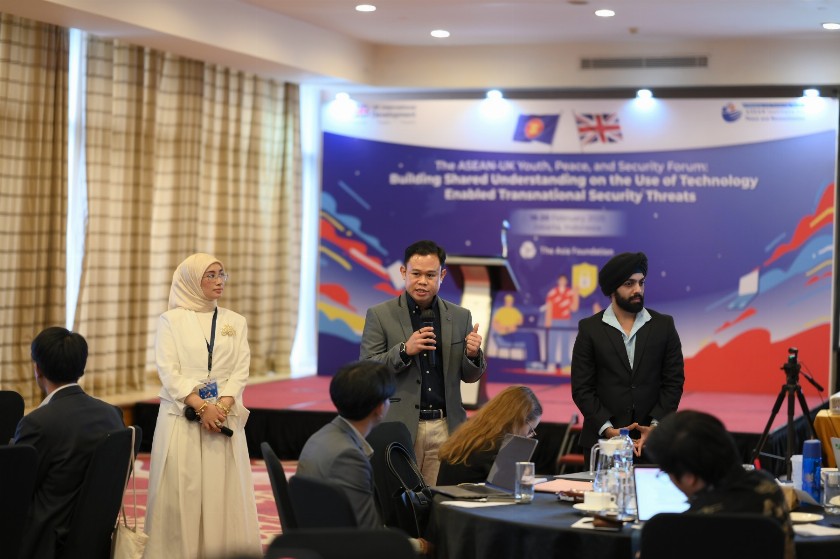
Held under Chatham House Rules, in addition to the youth participants, the Forum also hosted representatives from ASEAN Digital Senior Officials Meeting (ADGSOM), Senior Officials Meeting on Youth (SOMY), resource persons and/or experts coming from the region and the UK ranging from government officials, private sector, academe and civil society.
Stay connected with ASEAN-IPR through our website (asean-aipr.org) and social media platforms to keep up with our activities, many of which will be targeting and/or benefiting the youths of the region.
*******




